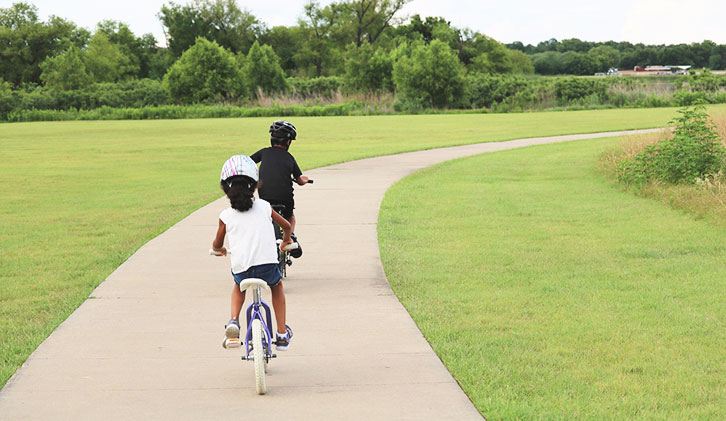by Michael D. DeMauro, MD, FAAP
We all know exercise is good for the heart, lungs, and belly fat, but it is also great for just about everything else our body does. Ultimately, it is good for what ails you.
The Institute of Medicine and Department of Health and Human Services both suggest we all get regular exercise. The recommended amount of exercise is 150 minutes a week of moderate aerobic exercise (30 minutes, 5 days per week) hard enough to sweat, or 75 minutes of vigorous aerobic activity per week. In addition, they recommend two sessions of 30 minutes of resistance training per week.
OMG! How can anyone get all that exercise done?! If you’re concerned about these exercise recommendations, you shouldn’t feel alone. Only one half of Americans get the recommended amount of aerobic exercise each week and only twenty percent of Americans meet the guidelines for both aerobic and resistance exercise. The good news is this exercise does not need to be 30 consecutive minutes, but a few minutes here and a few minutes there. It could be as simple as taking the stairs instead of the elevator or escalator, going for a vigorous walk, doing yard work, but sorry, I don’t think doing dishes, doing the laundry or playing X-Box counts.
This leads us to an even bigger question: what exactly is exercise? The Oxford English Dictionary and Wikipedia both pretty much agree. Oxford says exercise is “activity requiring physical effort carried out to sustain or improve health or fitness”. Wikipedia says “Exercise is any bodily activity that enhances or maintains physical fitness and overall health and wellness.”
But what does exercise do for us, anyway? Nearly every day I come across a new study or article touting the benefits of exercise, mostly cardiovascular benefits such as:
- Enhances the cardiorespiratory system
- Increases HDL cholesterol (the good cholesterol)
- Lowers triglycerides (the bad stuff)
- Reduces blood pressure and heart rate
- Reduces inflammation
- Improves blood sugar control
- Increases insulin sensitivity
- Improves Depression
- Improves Anxiety
- Relieves stress
- Improves vision
- Delays macular degeneration (old people eyes)
- Improves brain health (decreases the risk of stroke)
- Improves focus, both eyes and mind
- Improves our response to inflammation (inflammation may be a big contributor to heart attacks, stroke and many chronic diseases)
- Substantially decreases the risk of cancer (not all, but many)
- Help us organize thoughts
- Strengthens bones
- Stimulates the immune system
- Delays the onset of dementia
- Improves sleep induction and sleep quality
- Improves cravings for a healthier diet
- And many more less tangible aspects of our lives and bodies
It is well documented that people suffering from depression and anxiety do far better with recovery when they exercise.
Exercise is the type of medicine that appears to produce benefits no matter how small the dose. The pharmaceutical industry is trying their best to fit it into a pill and sell it, but it is really hard to put push ups in a pill. There is a new idiom “Sitting is the new smoking”. This is a sad predictor that for the first time in history, our children’s generation is not expected to live longer than our generation.
We will all have different abilities and preferences. My kind of exercise may not interest everyone or be right for everyone. Exercise for a toddler is just being awake. For some it is golf or tennis, for some it is running. For some it is gardening, or swimming, or walking the dog.
So, lets all just get out there, start somewhere. Start slow, but start moving!



